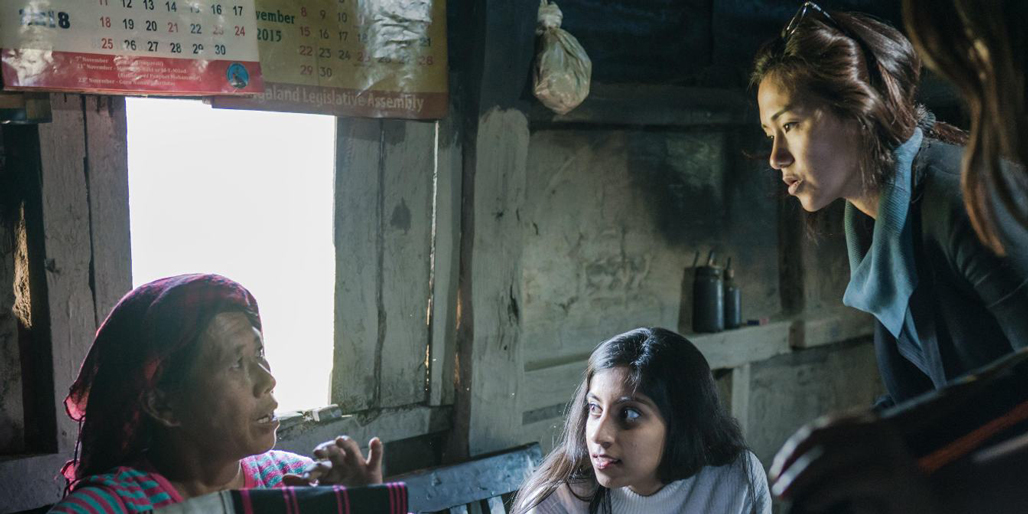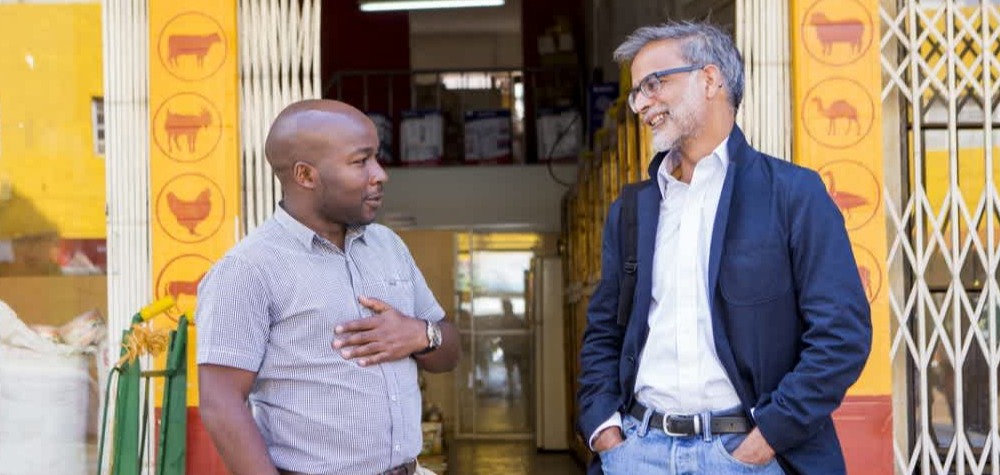Grow as a Leader
Igniting change in rural and marginalized communities
Learn how to create change in rural and marginalized communities
July 12, 2019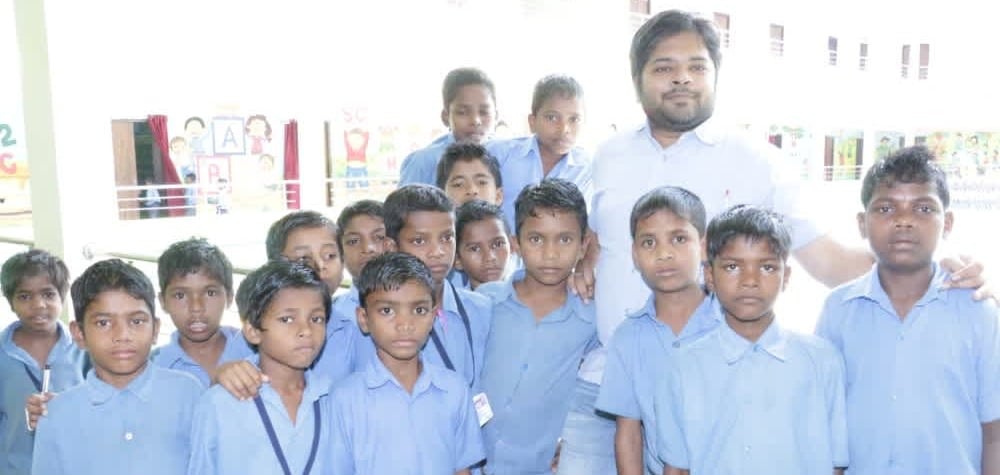
There are a lot of leaders in different regions, doing amazing things but invisible to society.
Silfredo Fuentes Chiquillo
Colombia Acumen Fellow
We spoke to six Acumen Fellows about their work in rural and marginalized communities – working in remote conflict regions in India, bringing quality affordable education to youth in the outskirts of Tanzania, uniting smallholder farmers in rural Colombia, and championing women’s rights and economic empowerment in West Africa.
Although the geography and change-making work of these six is wide-reaching, these Fellows’ visions for a better world are strikingly similar.
Take a moment to envision a world where...
Everyone has the opportunity to be an architect of their own future, with the means, the tools, and the community to build that life for themselves.
Youth dream of a more meaningful and more impactful life than what they have envisioned right now.
Change agents and leaders strive to contribute so others can have the same opportunities.
There might be financial inequality, disparities and differences, but everyone lives and dies with dignity and respect.
The imbalance of power and wealth is addressed by creating a space at the table for every soul.
There is equality, equity and justice. Where everyone is treated with dignity regardless of the many things that make us different.
To achieve these simple yet profound visions, Acumen Fellows are planting the seeds of change through education and the creation of space for others to realize their full potential.
Start by listening
Ashish is the founder of Shiksharth, where he is working to improve access to and quality of education in tribal areas of Sukma, Central India, with contextual solutions for conflict-affected children.
One of the greatest skills Ashish learned working in this community is listening.
None of the individuals on Ashish’s team of 20 are from the region originally. Being ‘outsiders’, it was essential to build trust in the community by showing up consistently. Another way the team built trust was keeping an open mind, tabling assumptions when asking what the teachers in the community needed.
Ashish shared, “interestingly, most of the schools gave us challenges that usually don't fall into the mandate of any educational organization.” Even though the problems raised weren’t necessarily direct education work, through listening, Ashish came to realize how his organization’s potential impact was dependent on serving these needs first and foremost.
It turned out the teachers needed help structuring and conducting morning assembly. Ashish explained, “most organizations with an educational mandate will not fund you for delivering non-essential programs like this... But 20 minutes of morning assembly plays a huge role in how the day will look… for a child and for a teacher.”
Hear Ashish's full story

Watch Now
Close
Similarly, Acumen West Africa Fellow Elizabeth Akowuge spoke about the importance of leading with empathy and trust. Elizabeth’s organization, Paworo Ghana, helps low-income rural women develop sustainable enterprises that cultivate sustainable livelihoods and community resilience.

Elizabeth shared how communities face an era of declining trust, where past scams and engagements full of empty promises and poor results leave them skeptical. “When trust is built, people dare to show me their real, vulnerable, broken and beautiful self. It is in these vulnerable interactions that we come together and build authentic relationships.”
Elizabeth is conscious to build trust by genuinely respecting the inputs of all participants or members - even when it might be difficult. As a result, the women she works with know that, even if something goes wrong, she put aside any personal motives and acted in their best interest.
Ditch the one-size-fits-all approach
Krupa Patel co-founded Silverleaf Academy, a network of schools in Tanzania with the goal of providing quality education at an affordable price.
One of Krupa’s biggest learnings launching Silverleaf Academy is that one size never fits all. For example, between two families in a village, one family may prioritize healthcare over education, while the other may prioritize education over healthcare.
Take the high incidence of child and maternal mortality due to the absence of a nearby healthcare center. This impacts every family in the vicinity but in nuanced ways. Using this as an example, Krupa expands on the implications of designing blanket solutions for issues: “The solution that individual families want can be very different. One mother might want to have a home health worker whom she knows and trusts to come and do a safe home delivery. Another mother might not want to see any professional but is more comfortable reading pre and postnatal information via SMS texts. And another mother might feel much more comfortable going to a clinic to meet with a professional.”
Nuances similar to this have shown up in the development of Silverleaf. One example is being mindful of both the parents and children as users of the service and understanding how the needs of each interrelate. Where parents may expect to see textbooks full of copied notes as an indicator of high-quality education, Silverleaf adopts a more active learning approach. The children love being in higher energy classrooms, and with that, there also needs to be consideration for communicating the same value to parents.
Based in Nigeria, Acumen West Africa Fellow Tsema Ede echoes this learning.
“We need to find African solutions to African problems. There is no one-size-fits-all approach to fixing our problems. Nigeria is a very diverse country, so what works in Northern Nigeria, doesn’t work in Southern Nigeria, doesn’t work in Eastern Nigeria, or the rest of the country.”
Tsema is a human rights lawyer dedicated to advancing and promoting the protection of rights for vulnerable communities. She sees herself as a ‘voice amplifier’ where she takes problems at the grassroots level and brings them “to the people in air-conditioned boardrooms that are never going to go into these communities. People who think these stories don’t exist.” Through dialogue and education, she works to restore the balance of justice.
Share the tools, not the answers
About three years into practicing law, Tsema got involved in a case where a young girl fell pregnant by her father. Partway through the proceedings, the young girl’s mother forced the case to be dropped when the family stopped showing up to court.
This was a learning moment for Tsema. She realized that her work need to be more pre-emptive than reactive; she needed to educate people about their rights before situations became dire.
She thought, “Maybe this imbalance and these inequities that exist now in society make it difficult for women to make decisions to protect themselves and their children. This 14-year-old girl’s life was ruined but she felt helpless…. I can't help you change if you're not willing to change. And so my work goes across the spectrum - I'm there before, for prevention, during, and after. I should encourage you to be strong enough so that when these violations come, you're not afraid to go through the process to make sure you get justice.”
Elizabeth, the Acumen West Africa Fellow helping low-income women develop sustainable enterprises, was most proud of her work when a group of women were awakened to take action after a reading of Martin Luther King Jr.’s Letter from Birmingham Jail. She was compelled to arrange the discussion after the letter sparked her own realization that, “When you want to bring people together and channel their energy toward change, you must impress upon them their own power, not just yours as a leader.”
With the help of a community teacher, she translated the letter into the local dialect and the women met to discuss it. As a result, the women started shifting their beliefs about their right to own farmland, and decided to take it upon themselves to draft an action plan to change their situation.
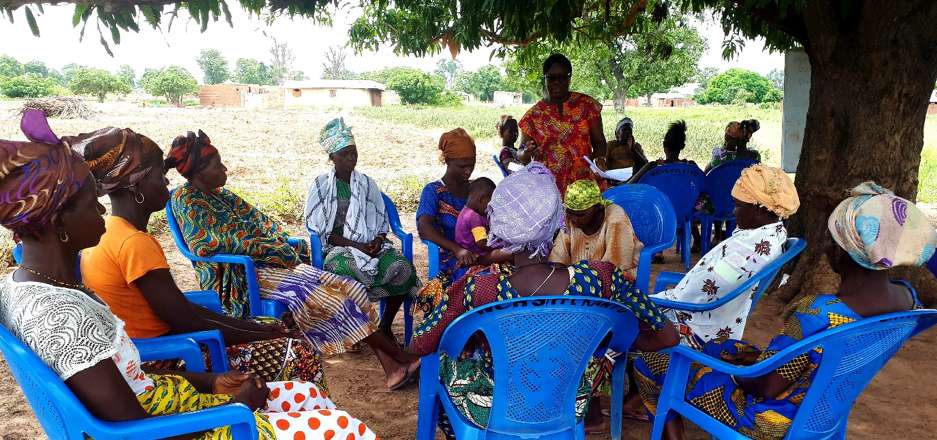
“These women need change; however, they are shackled by restrictive systems and beliefs that have prevented them from being empowered, including the right to own farmland. Though this system of land ownership has existed for a long time, the understanding of MLK brought a sense of awakening in these women."
Provide an environment for self-discovery and expression
“Clueless, with no resources.” This is how Shravan Kumar Jha, Acumen India Fellow, describes his beginnings when he first arrived in the remote region of Bihar six years ago.
From there, he simply started and let the work teach him.
Shravan was placed in Bihar through the Prime Minister's Rural Development Fellowship Programme, tasked with providing short-term support in 78 rural districts to improve governance program delivery.
He and his co-fellow who were placed in the region started gathering youth each morning, teaching things like competitive exam preparation. The gatherings expanded into youth joining the two men on outings to further villages, and eventually led to the co-founding of i-Saksham Education and Learning Foundation. Through this nonprofit, Shravan is dedicated to improving access to education in the remote and conflict-affected regions in Bihar and engaging youth as future leaders who will change education in their own villages.
As Shravan summed it up: “We are co-dreaming with these youths. We want them to dream of a more meaningful and more impactful life than what they have envisioned right now.”
The problem is, when you ask youth what they want to be when they grew up, they say they want to get a government job -- any government job that will give them security.
i-Saksham aims to tackle this issue in two primary ways. First, to provide education that inspires students to believe in the pursuit and realization of bigger dreams. And second, to enable the same graduates to lead their own local community centers to pass the dream forward. 90% of the i-Saksham team is made up of prior students from the local community.
“When our students see other youth from their community doing this, it shows them what’s possible.” Not only does this set an example for possible career paths outside of government, but, as Shravan points out, it inspires the local community to grow the capacity of the work and initiatives rather than depending on outsiders.
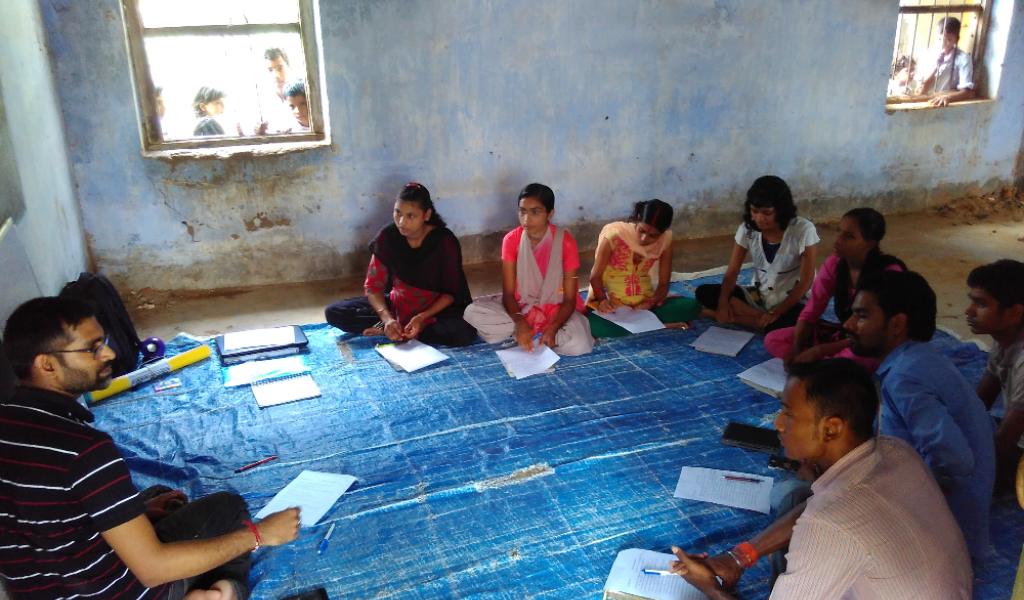
Big picture aside, the impact for participating youth shows up immediately in small but significant ways. The youth who go through i-Saksham’s two-year fellowship program receive a tablet to aid in their leadership curriculum. Shravan described how quickly the young leaders expressed themselves through this new technology, such as updating their Whatsapp profiles and starting to shape and claim their identity.
The space for self-expression goes further than Whatsapp profiles.
Shravan described how one young woman, Nalini, found the confidence to pursue a dream to use her newfound skills and interests in a way previously unimaginable.
Nalini grew up in a conservative family – one where she needed permission to travel outside the village. She started as a student and later graduated from the program to teach 100 young girls in a nearby school. When a school in Mumbai announced a certificate course in Dance Movement Therapy, which teaches the use of dance to counter violence, Nalini was called to apply. She made the trip to the other side of India for an interview -- a trip that took her out of her comfort zone -- and was the only person outside of that region selected to take part. From there, Nalini went on to start her Masters in Education degree from one of India’s more prestigious colleges in Southern India.
Let high-quality education expand what's possible
When asked about Silverleaf Academy, Krupa described how her vision goes far beyond the goal for quality education.
“Not just education in an academic sense but education of the full child. One that enables to build culture, characteristics and qualities that we would expect for future Society Shapers, including things like emotional literacy, emotional intelligence, and personal leadership.”
Silverleaf Academy is setting an example for what’s possible through high-quality education. Being the first inclusive English medium school in Tanzania, all students learn together, regardless of physical or psychosocial disabilities.
One outcome of this inclusive design is seeing students learn sign language alongside their deaf classmates. Krupa described a heart-warming moment where one of their most competitive students, Princess, demonstrated true inclusiveness at play.
In a football match, Princess was ahead of the pack with the ball and Wajuma, a deaf classmate, was on defense. Wajuma couldn’t hear her teammates calling to her to move across the field so Princess stopped, turned around to face Wajuma, and signed the message on behalf of her opponents.
Hear Krupa's full story:

Watch Now
Close
Be a guide, not an authority
“Since I was a kid, my parents told me that I was meant to change the world.” Born in a rural area of northern Colombia without access to the internet, Silfredo Fuentes Chiquillo wasn’t sure how his parents' prediction would take shape, but he felt the tug.
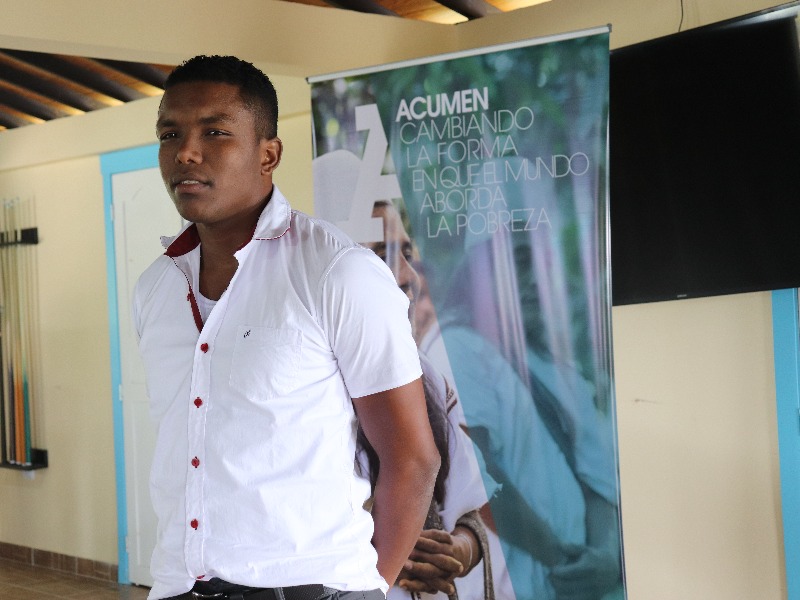
“I saw everything around me; I saw my community and people working every day, and I told myself, ‘there is something there, and I need to work for it and put my knowledge in the service of others.’” He saw a need for his agricultural community to work collectively to exchange knowledge and improve quality of life.
Today, Silfredo manages the Association of Smallholder Farmers and Producers of the Community of Membrillal (APPCM), fighting to reduce the gap between rural and urban communities. The organization works to empower agricultural producers through practical and business skills development.
Despite concerns about being the only farmer, Silfredo was drawn to apply to Colombia’s first cohort of Acumen Fellows. After the first seminar, his worries of making mistakes while surrounded by more educated peers gave way to an appreciation for a newfound shared strength. Instead he felt that together they could push for transformation throughout Colombia.
“After the seminar, we started getting to know each other, and I understood that education doesn’t matter -- we share the same set of values, and we help each other as we help our communities.”
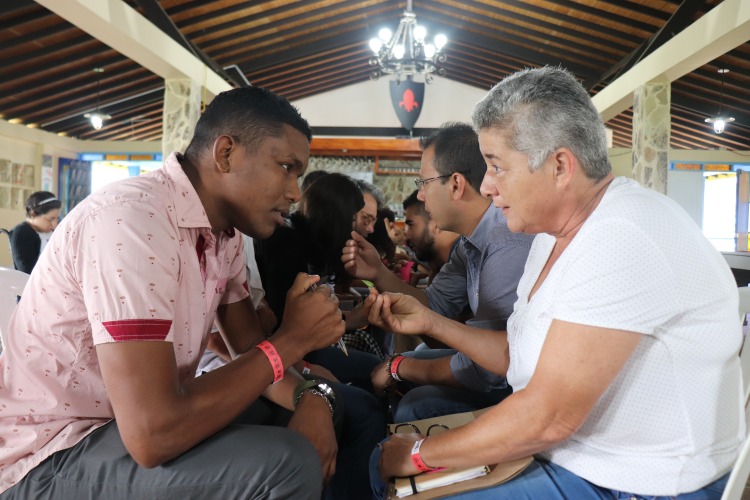
From Silfredo’s perspective, his responsibility is not to be an authority, but to be a guide to bring people together with the same purpose. He is hopeful for the future of his country: “Colombia is currently living a transition from wanting, to being able, to acting.”
He doesn’t expect this change to happen automatically. He realizes the need for Colombia’s 45 million people to work together as one, building a shared vision toward the same objective: a transformed country.
Like Colombia, the world is full of unique people who can contribute. To that end, Silfredo leaves us all with a call to action: “We need to ask ourselves: ‘how can I share my knowledge for the service and benefit of others?’”
Like many Acumen Fellows, he is optimistic about what we can achieve together to transform our communities for the better.
Interested in applying to be an Acumen Fellow? Learn more
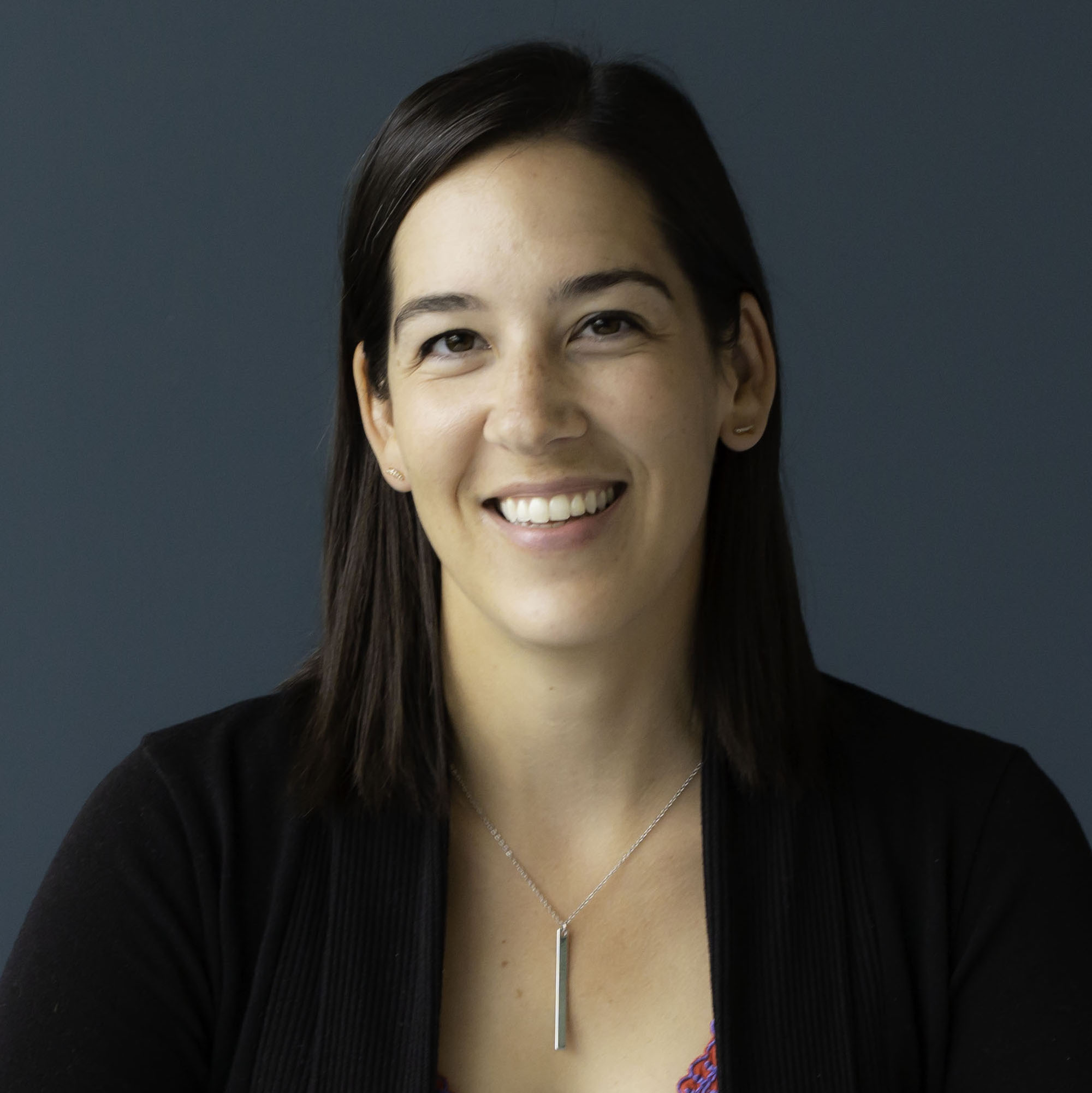
Author
Danielle Sutton
Danielle Sutton is the Content Animator at Acumen where she surfaces stories to inspire and activate social entrepreneurs. In an age of information overload, she believes in learning 'the right thing at the right time' to intentionally design impactful social enterprises. You can usually find Danielle digging into the Acumen course library, playing in the mountains, or exploring marketing on The Sedge blog.
